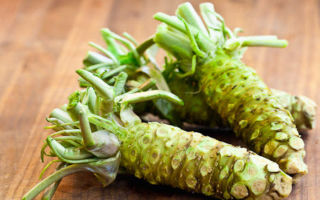Content
- 1 What is wasabi
- 2 What is the calorie content of wasabi made of per 100 grams?
- 3 How wasabi differs from mustard
- 4 Why isabi is good for the human body
- 5 How to make wasabi at home
- 6 The use of wasabi in cooking
- 7 Wasabi in cosmetology
- 8 Wasabi harm and contraindications
- 9 How to choose and store wasabi correctly
- 10 Conclusion
The benefits and harms of wasabi were first mentioned in Japanese manuscripts in the seventh century. Initially, it was positioned as a medicinal product with a lot of positive properties. Today wasabi is widely used in cooking as a condiment.
What is wasabi
Wasabi is a type of perennial herb of the Cabbage family. It is cultivated in Japan, due to which it received the second name "Japanese horseradish". But there is also a positive experience of growing vegetables in the United States and some areas of Russia with a temperate climate. Japanese horseradish lives mainly on the banks of rivers. In cooking, its root part has become widespread. A distinctive feature of the vegetable is its bright spicy aroma and pungent taste. In addition, it is famous for its many beneficial properties. There is also a second term for the word wasabi. Today, this is the name for a hot sauce, which is served along with Japanese dishes.
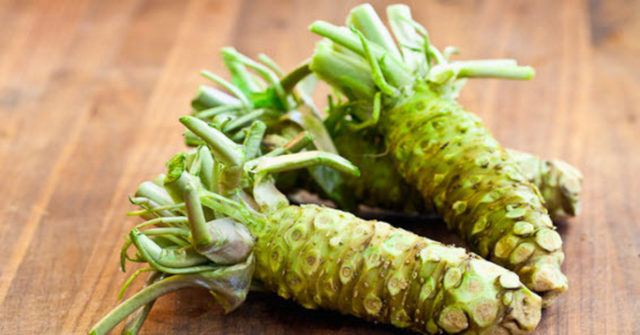
What is the calorie content of wasabi made of per 100 grams?
Wasabi is a product that is a cross between horseradish and mustard. It is distinguished by its bright green color and spicy taste. The main ingredient in the sauce is the root of the plant of the same name. It is noteworthy that its upper part is sharper than the lower one. In Russia, there is a less concentrated variation of the product. The content of the main component in it is only 25%. Wasabi also contains artificial color, cornstarch and mustard. In this case, we are talking about making production cheaper. The taste of Japanese horseradish is also different.
The main value of the product lies in its rich composition. It is represented by the following substances:
- cellulose;
- vitamin C;
- riboflavin;
- thiamine;
- niacin;
- calcium;
- phosphorus;
- manganese;
- potassium;
- zinc;
- iron;
- copper;
- vitamin B6.
The fiber in the composition of the product ensures the full functioning of the digestive system. It improves the absorption of proteins and stimulates peristalsis. The high iron content of Japanese horseradish improves blood composition and prevents the development of anemia. Zinc has a beneficial effect on the reproductive system. The abundance of vitamins in the product helps to strengthen the immune system. Niacin is involved in the conversion of food into energy.
Due to this composition, the product can be used even for medicinal purposes. In addition, it does not contribute to weight gain. 100 g of wasabi sauce contains 109 kcal. BJU product ratio:
- proteins - 4.8 g;
- fats - 0.6 g;
- carbohydrates - 23.5 g.
How wasabi differs from mustard
Wasabi and mustard are not the same thing. Mustard is a spicy sauce made from the seeds of the plant of the same name and additional ingredients. In its production, seasonings and acetic acid are used. Products differ among themselves and in color. Mustard has a dark yellow color, while wasabi has a deep green. There are also differences in taste. However, both sauces are used to spice up the dish.
Why isabi is good for the human body
Wasabi is considered not only delicious, but also extremely healthy sauce. It has a pronounced warming effect on the human body. It is believed that it is thanks to the presence of spicy food in the diet that the Japanese manage to maintain their youth for a long time. The exotic product is recommended for use to activate the immune system and treat colds. Sometimes it is used in the fight against infectious and fungal diseases.
The beneficial properties of wasabi include:
- prevention of cardiovascular diseases;
- anti-inflammatory effect;
- strengthening the immune system;
- increased sexual desire;
- antimicrobial action;
- prevention of the growth of malignant tumors;
- antibacterial action;
- slowing down the aging process.
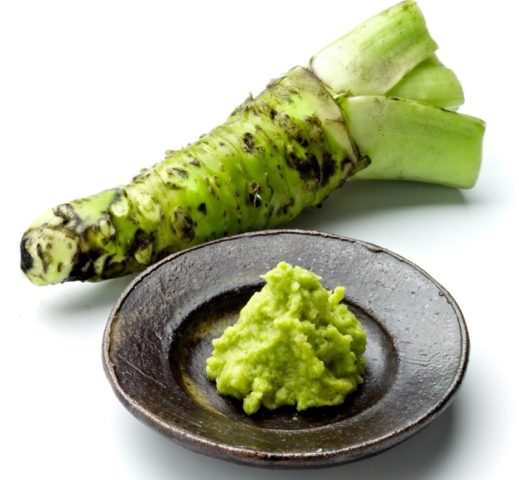
Moderate consumption of the product reliably protects the body from viruses and colds. At the same time, prevention of cardiovascular diseases is carried out. Japanese horseradish is also useful for patients with diabetes mellitus, as it stimulates metabolism. Once in the oral cavity, the substances in the composition of the product prevent the development of caries and reduce the bleeding of the gums. The high effectiveness of the product is observed in relation to the common cold. After its use, the breathing process is instantly facilitated.
An equally important advantage of wasabi sauce is the neutralization of toxic substances present in the body. In addition, it prevents the appearance of blood clots in the vessels and inhibits the process of multiplication of malignant cells, reducing the risk of developing oncology.
For women
Wasabi sauce has a beneficial effect on the female reproductive system. It stimulates blood flow to the pelvic organs, thereby eliminating stagnation and increasing sexual desire. Good blood circulation in the small pelvis ensures full growth of the inner uterine layer. Therefore, Japanese horseradish is used by women planning pregnancy. In addition, the product reduces the intensity of pain during menstruation.
Is it possible to use wasabi during pregnancy and breastfeeding
Whether it is possible for pregnant women to have wasabi, you need to check with the doctor on an individual basis. A small amount of sauce is not harmful to your health. But overuse of the product can cause heartburn and uterine tone. In addition, pregnant women are more likely to develop allergies.
3 months after giving birth, you can use the product in small quantities for lactating women. It is extremely important at this moment to observe the baby's reaction. If no allergies have arisen, then you can continue using the spicy sauce.
For men
The benefit of wasabi for men is to stimulate potency. Its use in food to improve blood circulation in the genital area. As a result, potency is restored and libido is increased. At the same time, the substances in the composition of wasabi cope with infections and inflammation. The product is recommended for use by men who are actively involved in sports. It has an invigorating effect and improves physical stamina.
For children
It is permissible for children to give wasabi paste only after the onset of 8 years. In this case, it is important to control the amount eaten.At an earlier age, its use can cause burns to the mucous membrane of the digestive tract. With the right approach, the product helps to strengthen the immune system and protect the child from viral and colds.
When losing weight
During weight loss, wasabi seasoning is used to stimulate metabolism. To get the desired result, it is enough to apply it in addition to the main meal. The substances in the sauce help to get rid of excess fluid, thereby assisting in weight loss by eliminating edema. But it should be remembered that the product stimulates the appetite. In the absence of control, this can backfire.
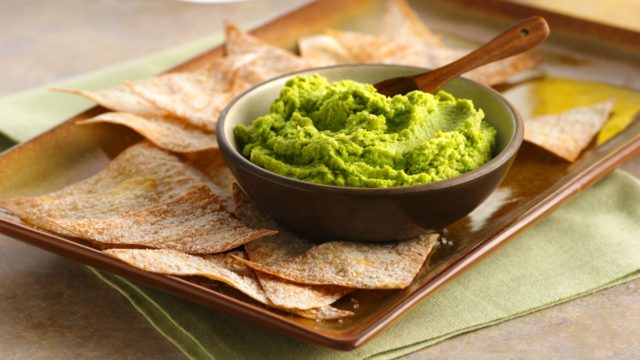
How to make wasabi at home
Spicy wasabi sauce can also be made at home. It only requires one ingredient. The difficulty lies in the fact that the fresh root is sold only in supermarkets in Japan. Buying it is quite problematic. If you manage to get wasabi root, it should be peeled, cut and chopped in any convenient way.
Wasabi powder may be the most successful alternative. It is transported from Japan to other countries in sealed packages, so it does not deteriorate for a long time. To prepare the sauce, it is enough to dilute the powder with cold water and stir thoroughly. The result is a creamy greenish mass. A bright spicy aroma should come from it. If desired, you can add a few drops of lemon juice to the finished sauce.
The use of wasabi in cooking
Japanese horseradish is widespread in cooking due to its specific and bright taste. Many are accustomed to using wasabi for rolls. It is believed to disinfect raw fish, which is the main ingredient. But the sauce also goes well with other foods. In Japan, it is customary to add it to almost every dish. It perfectly sets off the taste of rice and seafood.
Wasabi can be added where horseradish or mustard is appropriate. It goes well with meat and fish dishes. It is sometimes used as a dressing for pasta, exotic soups, casseroles and salads. It makes an excellent marinade for chicken or meat kebabs.
In Japan, wasabi sauce is used to prepare the traditional tempura dish. It involves frying various products in batter. With the addition of wasabi, the dish acquires a spicy flavor and rich aroma.
Wasabi in cosmetology
Wasabi powder can also be used in cosmetology. But it is categorically contraindicated to apply it on the skin of the face. Wasabi is used for spa treatments and warming body wraps for cellulite. Due to its local irritant effect, it enhances blood flow to tissues. This evens out the texture of the skin and gets rid of the orange peel.
Wasabi sauce is sometimes used to improve hair condition. Masks are prepared from it, intended for application to the root zone of the hair. The powder is diluted with water and stirred until a homogeneous consistency is obtained. The mass is spread over the scalp with rubbing movements. It is important to wear disposable gloves first. The mask is kept for no more than 7-10 minutes. During this period, a pronounced warming effect will be observed. This mask allows you to strengthen the bulbs and accelerate hair growth.
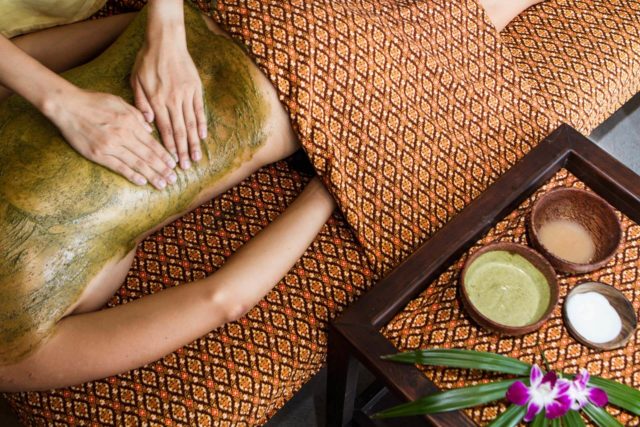
Wasabi harm and contraindications
Many people are interested in whether wasabi is harmful or beneficial to health. The opinions of experts regarding the nature of the effect of the product on the body vary greatly. In fact, it depends on the quantity in which the product is consumed.If used in moderation, it will only provide health benefits. Too much sauce can increase blood pressure and impair liver function. Wasabi is especially dangerous for people with chronic diseases of the digestive system. Once in the stomach, it has an irritating effect on the mucous membrane. This provokes pain and exacerbation of chronic diseases.
Contraindications for wasabi include:
- stomach ulcer;
- hepatitis;
- inflammatory processes in the urinary system;
- children under 8 years old;
- allergic reaction;
- gastritis;
- hypertension;
- pregnancy and lactation period;
When wasabi sauce is applied topically to the surface of the skin, redness and a characteristic burning sensation may occur. With an allergic reaction, rashes appear, accompanied by itching. To relieve these symptoms, you must exclude any contact with Japanese horseradish and take an antihistamine.
How to choose and store wasabi correctly
When choosing wasabi for sushi, it's best to go to a specialized store. Before buying a sauce, you should carefully study its composition. Real Japanese horseradish contains a minimum of additional ingredients. These may include stabilizers, preservatives and colorants.
Wasabi powder contains only the crushed root of the same name. It must have a homogeneous structure without additional inclusions. If the package is not transparent, you need to touch it to determine the consistency of the contents. The powder should be friable and easy to move from one end of the package to the other. It is very important to pay attention to the shelf life of the product.
It is also necessary to analyze the quality when buying real Japanese horseradish root. Ideally, it should be firm and free from damage. It should be assessed for mold. The smell of dampness from the product is unacceptable. Dark spots on the surface indicate that it has been on the counter for too long.
The shelf life of Japanese horseradish depends on its shape. Powders and tablets can be stored in sealed containers for up to 1 year. The sauce after opening the tube is usable for a week. You need to store it on the refrigerator door.
Conclusion
The benefits and harms of wasabi should be studied in advance, eating the product in the presence of contraindications can provoke unwanted symptoms. In moderation, the sauce will not only diversify the taste of familiar dishes, but also benefit your health.

